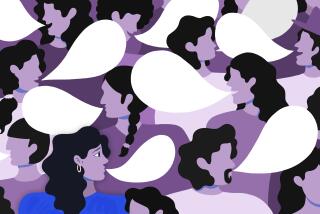Language of Technology, Baseball : English Still 2nd Nature in Cuba Despite 27-Year Split From U.S.
- Share via
HAVANA — Despite 27 years of isolation from the United States, U.S. bans on travel and trade and attempts to give Russian a boost, English remains Cuba’s second language.
It is the language of technology, tourism and textbooks, of baseball games and television movies, even, in “Spanglish,” the source of names for household appliances.
“Not only is it the most popular foreign language among ordinary Cubans but it is virtually the only second language taught to the island’s more than 400,000 secondary school students,” a Cuban educator said recently.
Required Subject
English is required from 7th through 12th grades, and the Ministry of Education, responsible for primary, secondary and trade schools and adult education, employs about 5,000 English language teachers, the educator said.
In the late 1970s, the ministry tried to give the Russian language a boost. Reflecting the island’s close ties to the Soviet Union, it decreed that 30% of Cuban secondary school students must study Russian.
But within a few years the plan was dropped, and by the early 1980s nearly 95% of the students were enrolled in English classes.
The reason for the turnabout, the educator said, was the recognition that English is an international language, more important to Cuba than any other foreign language.
Cubans don’t hear English only in the classroom. Some listen to English radio broadcasts from Florida and hear popular music with English lyrics. They can also see several British or U.S.-made films each week on Cuban television, broadcast in English with Spanish subtitles.
Needed for Textbooks
As in many other developing nations in the Spanish-speaking world, English is considered a necessity because it is the language of many textbooks and up-to-date reference materials.
For Cuban university students in the sciences, humanities and engineering, two years of English is compulsory, and many opt to take more advanced courses.
Cuba’s medical students, too, must study English during all five years of their combined pre-med and medical training. A Cuban public health official said English studies were increased from two to five years in the mid-1980s at the insistence of President Fidel Castro.
Castro himself reads and understands English quite well. During a U.S. visit in 1959, when he came to power, he gave speeches and interviews in fluent though accented English. But he avoids speaking English in public, saying he prefers to express himself in his native tongue, and he may well have lost some of his fluency over the years.
Technology Admired
A Cuban official explained that English is the language that best serves the nation’s goal of fighting its way out of underdevelopment. U.S. technology is greatly admired by the Cubans, he noted, and English is a key to learning it.
When Cuba’s engineering schools decided in 1972 to introduce a master’s program, they turned to the Canadian University Service Overseas. The degree candidates took intensive English courses from Canadian teachers.
The tourist trade is another key reason for learning English. The Cuban tourism industry trains some guides and workers in French, German and other languages but deems English a necessity for hotel and restaurant workers who deal with the public.
Although Cuba has had little direct contact with the United States since 1961, English has remained an influence, sometimes cropping up in “Spanglish”--versions of which appear in many Spanish-speaking countries as well as in Latino neighborhoods in the United States.
Creeping Influence
In Cuban “Spanglish,” someone who wants rum straight up at a Havana bar, asks for a estrai , derived from “straight.” An automobile clutch is a cloch in Cuba, rather than the Castilian embrague .
In baseball, Cuban fans call a double a tubey --from two-base--and a home run becomes a jonron . Many Cubans also politely say sankyou instead of gracias .
It has been illegal under U.S. law for any business to trade with Cuba since 1960. Yet, even now, the trademarks of famous U.S.-made products have not been forgotten.
A refrigerator is commonly called by the brand name Frigidaire even though it is manufactured in the Soviet Union.
More to Read
Sign up for Essential California
The most important California stories and recommendations in your inbox every morning.
You may occasionally receive promotional content from the Los Angeles Times.













